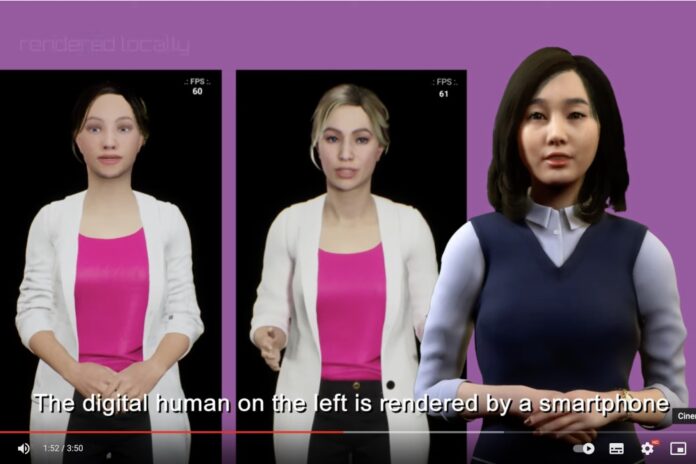The augmented reality (AR) proof of concept (PoC) is aligned with the GSMA Foundry Telco Edge Cloud (TEC) initiative.
KDDI Corporation, Deutsche Telekom, MobiledgeX, Sturfee and Mawari have jointly developed a mobile application PoC, called Bloom City, to demonstrate an augmented reality (AR) application.
It uses remote rendering from Mawari and visual positioning from Sturfee running on a common platform provided by MobiledgeX, across edge networks jointly provided by KDDI and Deutsche Telekom.
This PoC has the modest aim of accelerating global edge-enabled extended reality (XR) application development. It will be showcased in alignment with the GSMA Foundry Telco Edge Cloud (TEC) Pre-Commercial Trials initiative. A video demonstrating the PoC is available here.
The rationale
To provide the best user experience, next generation mobile applications like XR require close proximity to support APIs and SDKs in backend code, and deliver the appropriate quality of experience at scale.
To address that requirement, the APIs need to be consistent and cloud services will be deployed within mobile operators’ edge networks.
For operators, the challenge is speed, scale and collaboration. Today, they cannot benefit from each other’s market development, especially in the area of discovering the new “in-network” services that will be required to power the next generation of apps and solutions.
The PoC
This trial showed edge-enabled services across different geographies and the two mobile operators’ edge networks. The MobiledgeX Edge-Cloud platform provided unified access to KDDI and Deutsche Telekom’s 5G edge resources, Sturfee and Mawari deployed and ran services with optimal latency and bandwidth, creating “a highly-differentiated mobile application experience”.
In the Bloom City demo application, Mawari’s XR streaming provides “hyper-realistic, personalized digital assistants, developed in conjunction with au VISION STUDIO, (see picture) who lead app users on a guided tour of Bonn or Tokyo.
The digital tour guide and virtual, interactive billboard advertisements overlay the user’s actual world view via Sturfee’s visual positioning service (VPS), while KDDI and Deutsche Telekom-built servers run on NVIDIA GPUs in edge networks provide performant compute access.
The MobiledgeX Edge-Cloud platform running on top of operators’ edge infrastructure optimise dynamic workloads at reduced latency.
Satellite imagery
The Sturfee VPS uses MobiledgeX Edge-Cloud to onboard backend services for satellite imagery based on high-precision localisation systems. Deployment uses a single API call to any target edge infrastructure connected to the system.
Mawari’s XR streaming format, powered by datacenter GPUs, allows the high fidelity content to be streamed from the edge networks to XR devices, including smartphones and head-mounted displays that could otherwise not be processed by the devices.
The result is unprecedented quality, saving cost, size and battery life, while supporting scalability, according to the press statement.
A low latency connection to the edge network is required to correctly position and blend hyper-realistic content with the real world.
The PoC makes full use of MNO edge networks to enhance ultra-low latency features of 5G, and is designed to realise a new platform for distributing XR services and experiences.



